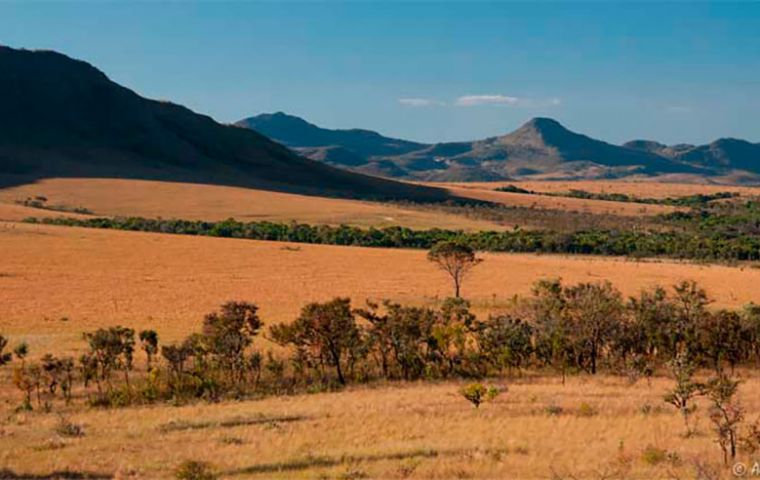MercoPress. South Atlantic News Agency
New attempt to thwart trading of grains and oilseeds grown in South America's cleared forest land
 The move could bolster conservation for Brazil’s Cerrado, the world’s most bio-diverse savanna, most of which taken for commercial agriculture
The move could bolster conservation for Brazil’s Cerrado, the world’s most bio-diverse savanna, most of which taken for commercial agriculture Mercosur and the European Union failed to sign the much-expected and long-awaited free trade and cooperation agreement during the South American block summit in Rio do Janeiro, mainly because of discrepancies over forestry and agricultural land. Brazilian President Lula da Silva said he was committed to signing the agreement with the EU, and will “not give up” until achieved but further hurdles could be in the way.
Some of the largest and most influential global commodities trades announced that they will stop buying soy from farms that ruin South American grasslands, adding to previous commitments to shun growers that clear forests, a Tropical Forest Alliance group said on the sidelines of the COP28 climate summit at Dubai.
The move could bolster conservation for Brazil’s Cerrado, the world’s most biodiverse savanna, at least half of which has already been taken over for commercial agriculture. Farming, forestry and land use account for more than a fifth of planet warming-emissions.
The firms, including Archer Daniels Midland, Bunge, Cargill and Louis Dreyfus Company, agreed that by the end of the decade they will no longer buy soy from farms that destroyed any non-forest natural vegetation in the Amazon rainforest, Chaco dry woodlands or the Cerrado, said Petra Tanos of the Tropical Forest Alliance.
The commitment adds to the sector’s pledge last year to eliminate deforestation by 2025.
Tanos said the move is most consequential for the Cerrado, Brazil’s most rapidly expanding agricultural frontier that includes large stretches of grassland. In 2023, Cerrado destruction allegedly hit its highest point in eight years.
The Tropical Forest Alliance is a World Economic Forum initiative that works with commodities firms on environmental commitments.
Beyond the United States, the largest soy exporting nations are in South America, where natural vegetation is typically cleared to make way for farms.
In the lead up to United Nations COP28 climate change summit in Dubai, some of the companies announced even more aggressive commitments. Last month, Cargill announced it would eliminate deforestation and land conversion from its supply chains by 2025 in Brazil, Argentina and Paraguay.
Archer Daniels Midland committed to eliminating land conversion among its direct suppliers by 2025 and indirect suppliers by 2027 across sensitive South American biomes.
But the industry has a history of failing to meet past commitments. In 2010, hundreds of consumer brands pledged to reach “net zero” deforestation by 2020, but failed to meet the goal.




Top Comments
Disclaimer & comment rulesCommenting for this story is now closed.
If you have a Facebook account, become a fan and comment on our Facebook Page!